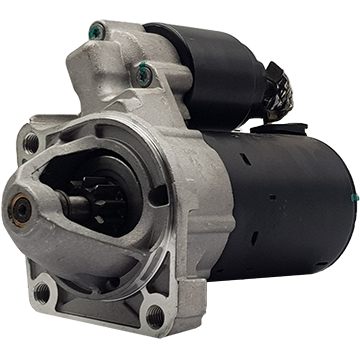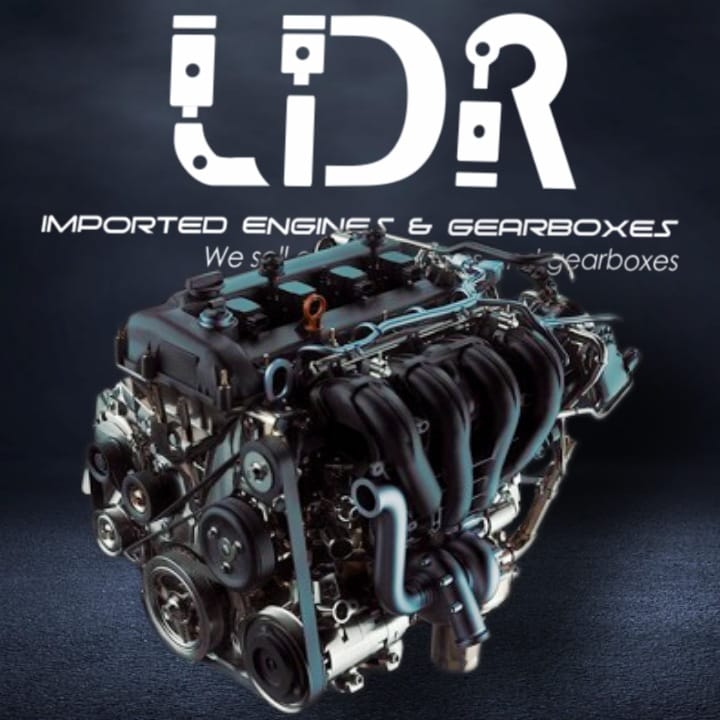Save Money on Repairs with Regular Ford Fiesta Engine Inspections
Save Money on Repairs with Regular Ford Fiesta Engine Inspections
Blog Article
The Future of Engines: Innovations Driving Sustainable Power Solutions
As the vehicle industry navigates the vital change towards sustainability, the future of engines is increasingly defined by groundbreaking advancements. Electric engine advancements, along with appealing growths in hydrogen gas cells and biofuels, are improving the landscape of power options. The development of crossbreed systems additionally complicates this advancement, providing both obstacles and possibilities to decrease discharges successfully. Combined with the combination of expert system in engine layout, these technological strides elevate important questions about their long-lasting stability and influence on conventional standards. What might this indicate for the market and consumers alike?
Electric Engine Advancement
The evolution of electrical engine developments symbolizes an essential shift in the automotive and aerospace industries, driven by the immediate requirement for sustainable options to fossil gas. This shift is characterized by substantial innovations in battery innovation, power electronic devices, and electric motor layout, which jointly improve the efficiency and efficiency of electrical engines.
Current developments have actually caused the development of lighter, more energy-dense batteries, such as lithium-silicon and solid-state batteries, which guarantee longer arrays and shorter billing times. Additionally, enhancements in electric motor performance, such as using long-term magnets and progressed cooling systems, allow electrical engines to operate successfully under differing conditions. These enhancements not just boost automobile efficiency but likewise add to a decrease in overall energy usage.
Moreover, the combination of sophisticated software program algorithms has actually optimized energy monitoring in electrical lorries, enabling regenerative stopping and predictive charging strategies. As producers significantly welcome electrical propulsion, the automotive and aerospace fields are seeing a standard shift towards greener modern technologies. This evolution not only satisfies governing needs however likewise lines up with consumer preferences for ecologically friendly transportation solutions, strengthening electrical engines as a cornerstone of future sustainable movement.
Improvements in Biofuels
As the auto and aerospace markets progressively prioritize sustainable power resources, improvements in biofuels become a complementary solution to electrical engines. Biofuels, stemmed from natural materials such as crops, waste, and algae, offer a cutting-edge opportunity for minimizing greenhouse gas emissions and dependence on nonrenewable fuel sources.
Current research has actually focused on improving the performance and sustainability of biofuel manufacturing. Second-generation biofuels use non-food feedstocks, reducing competition with food supply and decreasing environmental influence. Improvements in synthetic biology have allowed the design of microbes to generate biofuels a lot more properly, leading to higher returns and reduced production expenses.
In addition, the development of drop-in biofuels enables smooth integration into existing framework, allowing a smoother shift for industries typically based on fossil fuels. ford fiesta engine. These gas can be used in present engines without adjustments, facilitating their adoption throughout various industries
Investments in biofuel technology, along with helpful policies, are vital to drive technology and scalability. As the global community seeks to deal with environment adjustment, biofuels offer a pragmatic, instant service that lines up with the overarching objective of sustainability in transport and aeronautics.
Hydrogen Gas Cell Technology
A growing number of firms and scientists are exploring hydrogen fuel cell modern technology as a sensible alternative to conventional power sources in transportation and energy systems. This technology converts chemical power from hydrogen right into electricity with an electrochemical response, with water as the only result, making it an eco-friendly choice.
The core of hydrogen fuel cells is the fuel cell stack, where hydrogen molecules are divided right into electrons and protons. The circulation of electrons produces electricity, while protons move with a membrane to incorporate with oxygen from the air, developing water. This process results in high performance and reduced discharges, positioning hydrogen gas cells as a vital player in the change to sustainable energy.
Significant advancements have actually been made in enhancing the toughness and effectiveness of gas cells, together with decreasing prices with innovative production methods. The development of hydrogen production methods, such as electrolysis powered by eco-friendly energy resources, enhances the sustainability of the total system. As infrastructure for hydrogen refueling expands and manufacturing techniques come to be much more efficient, hydrogen gas cell innovation holds wonderful promise for decarbonizing various fields, including durable transportation and stationary power generation.
Crossbreed Systems and Their Influence
Hybrid systems represent a substantial evolution in sustainable engine technology, merging standard inner burning engines with electric propulsion to enhance power efficiency and decrease discharges (ford fiesta engine). This twin technique permits cars to utilize both source of power, allowing better versatility in energy intake and reducing dependence on fossil gas

In enhancement to ecological benefits, crossbreed systems supply customers a viable transition in the direction of fully electric vehicles. They minimize variety anxiety by integrating the comfort of gas with the benefits of electrical propulsion, making them an attractive option for a wider audience.
The Role of AI in Engine Style
Leveraging sophisticated algorithms and artificial intelligence techniques, the vehicle market is increasingly integrating expert system (AI) right into engine design processes. AI enhances the efficiency and performance of layout by assessing substantial Website datasets to determine ideal configurations and efficiency specifications. This capability permits designers to mimic various operating problems and predict engine actions under several scenarios, significantly lowering the moment and cost connected with traditional prototyping approaches.
Moreover, AI facilitates the growth of advanced products and combustion procedures customized for sustainability. By enhancing gas effectiveness and minimizing discharges, AI-driven designs line up with international efforts intended at decreasing the carbon impact of automobile engines. Equipment discovering algorithms can likewise anticipate maintenance requirements, leading to enhanced dependability click here now and long life of engine parts.
In Addition, AI contributes in the integration of electrification innovations, such as crossbreed systems, where it can enhance battery administration and energy recovery processes. As the sector relocates towards more lasting power options, the duty of AI in engine design becomes significantly essential, driving technology and boosting the performance of future engines. Inevitably, the cooperation between AI and engine layout advertises a brand-new era of smarter, cleaner, and extra effective automotive innovations.

Final Thought
Finally, the future of engines is being shaped by a convergence of innovative innovations that focus on sustainability. Electric engine innovations, biofuel developments, hydrogen fuel cells, and hybrid systems jointly add to a substantial decrease in exhausts and environmental influence. In addition, the integration of man-made knowledge in engine style boosts performance and efficiency. These transformative options emphasize a commitment to creating a cleaner, more sustainable auto landscape, ultimately benefiting both culture and the environment.
Electric engine developments, alongside promising advancements in hydrogen gas cells and biofuels, are improving the landscape of power remedies. In addition, enhancements in electrical motor performance, such as the find usage of irreversible magnets and progressed cooling down systems, make it possible for electric engines to operate efficiently under differing problems. By maximizing fuel effectiveness and decreasing exhausts, AI-driven designs line up with international campaigns aimed at minimizing the carbon footprint of automobile engines. As the sector relocates in the direction of more lasting power remedies, the function of AI in engine layout comes to be progressively important, driving innovation and boosting the efficiency of future engines. Electric engine innovations, biofuel advancements, hydrogen fuel cells, and crossbreed systems collectively add to a considerable decrease in discharges and ecological effect.
Report this page